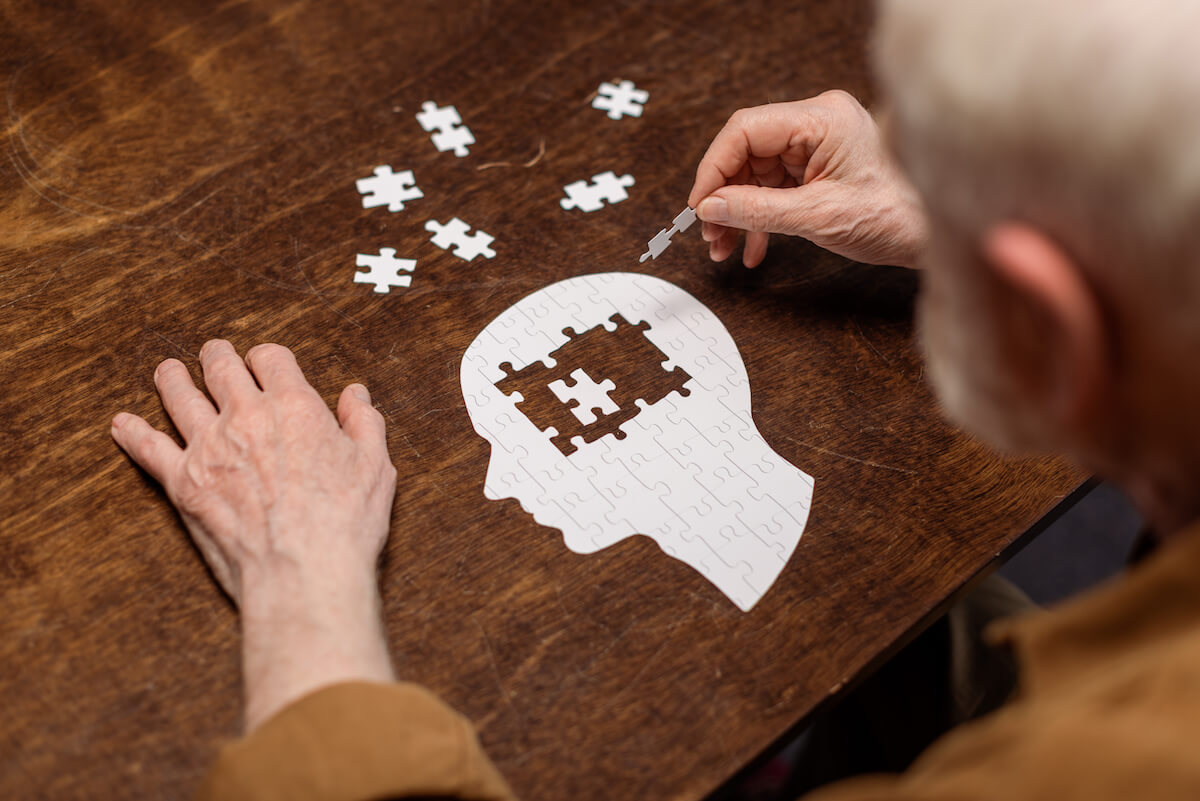Written by Haven Memory Care
Knowledge is power. Few things in life are more accurate than that. For caregivers and families of the more than 5 million individuals living in the U.S. with Alzheimer’s and other dementias, empowerment comes from gaining knowledge about the stages, symptoms, and behaviors associated with these two conditions. A good starting place for that process is understanding their distinctions.
The Alzheimer’s Association defines dementia as a decline in mental ability severe enough to interfere with daily life. They specify that, while Alzheimer’s is the most common cause of dementia, accounting for 60-80% of cases, it is a specific disease. In contrast, dementia itself is a group of symptoms associated with a decline in memory, reasoning, and other thinking skills. In other words, while Alzheimer’s always results in dementia, dementia isn’t always caused by Alzheimer’s.
In order to understand dementia, one must first know the “4 A’s,” as these four symptoms are the calling cards of dementia:
- Amnesia
- Aphasia
- Agnosia
- Apraxia
Amnesia
Amnesia is the most commonly known of these symptoms and, due to the plots of some really bad movies, the most misunderstood as well. Amnesia isn’t normally acquired instantaneously with a bump on the noggin. Rather, it is a progressive inability to use short-term memory. The first indication is often the continuous repetition of questions and frequently the first change resulting from Alzheimer’s that family members notice.
Aphasia
Aphasia refers to the loss of the ability to speak, write, and understand language, both verbal and written. It is a symptom of many different conditions and can occur as the result of a stroke, head injury, brain tumor, or non-dementia-related illness such as Lou Gehrig’s disease. In the early stages of dementia, individuals affected by Aphasia can often recognize three out of four words. In later stages, that can decrease to one out of four or even zero.
Agnosia
The third A, Agnosia, applies to an individual’s inability to process sensory information. In the absence of a physical deficiency related to the corresponding body part, an individual with Agnosia will experience a decreased ability to recognize objects, persons, sounds, shapes, and smells. Often one or more of the senses will show a more pronounced loss than others.
For example, an individual who is unable to visually recognize a set of keys for what they are may be able to do so through the sense of touch by picking them up. This symptom can be the most personally traumatic for family members as their loved one begins to cease to recognize them. For instance, while someone exhibiting symptoms of Agnosia may be able to ascertain that the person in front of them looks familiar and generates a certain level of comfort and connectedness, they are unable to specifically recognize them as their son or daughter or spouse, leading to increased feelings of deprivation and loneliness for the unrecognized family member.
Apraxia
The loss of the ability to execute or carry out movements and gestures, despite having the desire and the physical ability to perform them is called Apraxia. The severity of Apraxia can range from the inability to move one’s eyes as desired or instructed to initiate the basic movements necessary to carry out one’s Activities of Daily Living (ADLs) such as dressing, bathing, eating, and toileting.
Since the caregiver providing daily assistance to someone with dementia is frequently a spouse of the same or similar age and physical ability, Apraxia is the aspect of dementia most often necessitating admission to a Specialty Care Assisted Living Community such as Haven Memory Care.
Further enhancing the knowledge base for families and friends of affected individuals, the Alzheimer’s Association has compiled the “10 Early Warning Signs of Alzheimer’s.” They are:
- Memory loss that disrupts daily life
- Inability to make a plan or solve problems
- Difficulty completing familiar tasks
- Confusion with time or place
- Trouble understanding visual images and spatial relationships
- New problems with words in speaking or writing
- Misplacing things and losing the ability to retrace steps
- Poor judgment/decreased ability to make sound decisions
- Withdrawal from work or social activities
- Changes in mood and personality
Knowledge of the symptoms of Alzheimer’s and other dementias is the first step in understanding the resulting behaviors exhibited by the affected individual and the development of the ability of caregiving family members to react to those behaviors in a way most beneficial to everyone involved.
How Can Haven Memory Care Help?
Haven Memory Care in Gulf Shores, Alabama, offers specialized memory, Alzheimer’s, and dementia care to individuals and families. Our community seeks to provide residents with a safe and soothing environment where they can continue to have meaningful experiences while providing family members with a deeper understanding of memory loss and peace of mind that their loved one is receiving the best care possible. We invite you to contact our community to learn how our memory care services can help your family.

